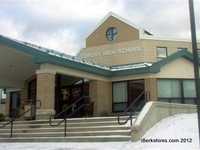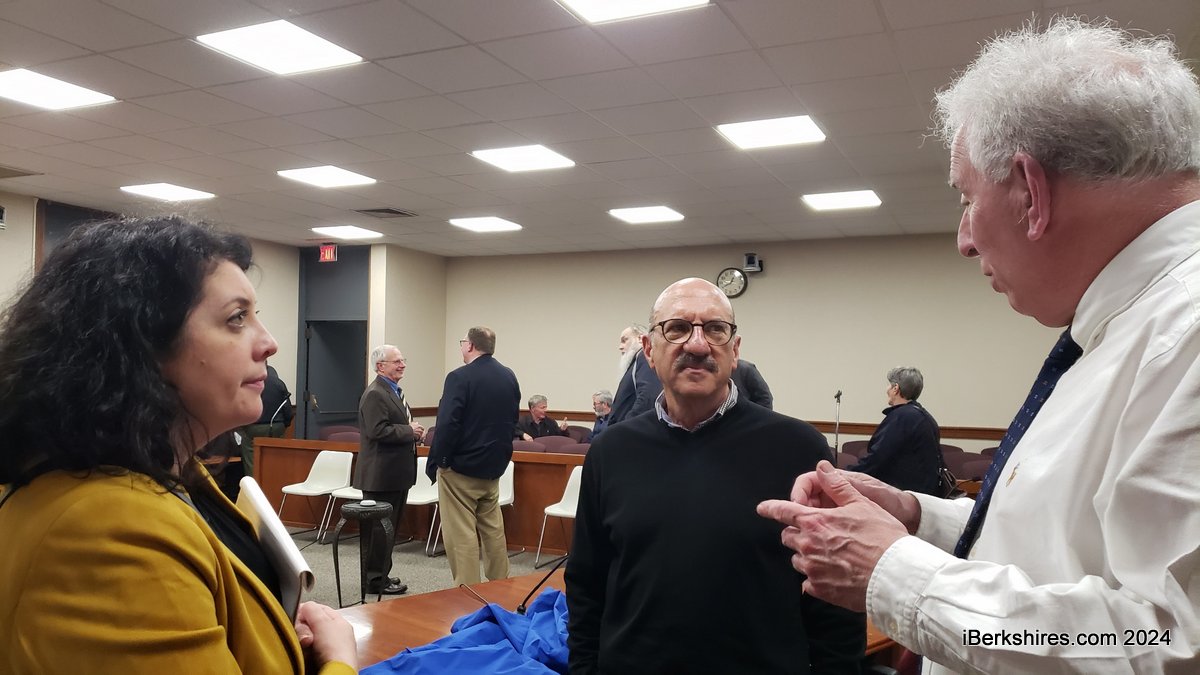Drury High Sees Boost Toward Graduation Goals
 |
NORTH ADAMS, Mass. — Drury High Shool has seen a jump in its graduation rates over the past four years, especially for its most at-risk students.
Principal Amy Meehan said the school appears on track to meet its 2014 graduation goals.
Meehan presented the numbers to the School Committee last week, noting they included all students attending the high school within the school years 2007-2008 through 2011-2012.
The school district set a goal to improve graduation rates for students with disabilities and low-income students by 15 percent by 2014 as part of its school improvement plan.
"All in all, I think last year we made great strides and bumped about 10 percent across the board," said Superintendent James Montepare. He said the overall rate of 82 percent for 2012 was not too far off the mark statewide.
Drury has seen the graduation rate for students with disabilities move from 44 percent of students in four years to 69 percent in 2012, exceeding the 2013 target by 4 percent. The rate for low-income students has risen from 58 percent to 70 percent; the 2013 target is 77 percent.
Meehan said a number of programs have been put in place to help at-risk students succeed on the Massachusetts Comprehensive Assessment System tests, a requirement for graduation.
A student support center model, which started at Brayton before expanding to the two other elementary schools and then Drury, provides a place for students process difficulties they may encounter and work through mild behavioral problems.
A transition support program, established when Conte Middle School was still open, is a summer program that works with at-risk eighth-graders who need "embellishment" with their academic skills. The program also allows students to earn and "bank" high school credits.
The high school also offers off-campus opportunities such as work internships and college access, such as the Positive Options Program run at Berkshire Community College.
The district also offers 21st Century learning academies during the school year and summers, and has a full-time special education coordinator working with high school students. Meehan said the focus was on "targeted monitoring" to ensure students don't fall behind.
The principal those efforts are being further supported by a state graduation grant received last year that is bringing on board graduation coaches to support at-risk students.
Meehan said some of the challenges are students who with disabilities who take five or more years to graduate and students who transfer in later in their high school years.
The school district works with transfer students to try to align what credits they have earned with the high school's curriculum, but it can be problematic, and students sometimes don't stay.
One student, for example, arrived from another district in December, she said. "They were here for seven days but decided it was not their thing. Unfortunately, we're held accountable for that."
Adult students with disabilities can also take longer to "graduate out."
"I think people should understand that with the special needs students, we have a responsibility until they turn 22," said School Committee member Mary Lou Accetta. "Because adult services for people with disabilities are so limited these days, many families are choosing to have their students do a fifth year or a sixth year."
Montepare agreed, saying there were no plans to change the adult student program, which prepares students with life skills to go into a workplace setting or other program.
School Committee members commented on the significant increase.
"It's a lot of really great work by our teachers and support staff, so they really deserve a lot of credit," said Meehan, "and the families of our students."
Tags: academics, Drury High, graduation rates,
















